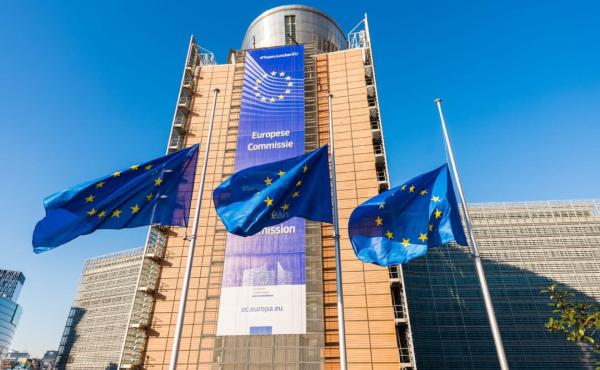
The ECGI blog is kindly supported by

Why Article 15 (combating climate change) should be taken out of the CSDD
The current heat waves in large parts of Europe are a visceral reminder of the devastating impact of human-made climate change. In some countries, temperatures have already risen above the 1.5 °C benchmark of the Paris Agreement. Reducing emissions is therefore urgent.
Transformation to a net-zero economy is key to limit climate change and the consequences of rising temperatures. Such a transformation is not thinkable without transforming businesses. Legal action is needed not only to raise awareness, but also to initiate the transformation process. This is where the Proposal for a Sustainability Due Diligence Directive (CSDD) comes in: Its Art. 15 (1) which is titled "Combating Climate Change" requires companies to adopt a plan to ensure that the business model and strategy of the company are compatible not only with a sustainable economy, but also – specifically – with the limiting of global warming to 1.5 °C in line with the Paris Agreement.
By setting the emission reductions in lieu of the company, the supervisory authority effectively dictates the business model and strategy of that company
The proposed Art. 15 CSDD raises several concerns. One concern regards the provision's potential for intensive governmental intervention in a company's operations. According to Art. 15(2), CSDD Member States must ensure that, in case climate change is or should have been identified as a principal risk for, or a principal impact of, the company's operations, the company includes emission reduction objectives in its plan. The competent authority to supervise compliance with Art. 15 is designated by the Member States pursuant to Art. 17 CSDD. Art. 15 CSDD thus allows and even requires direct governmental intervention in a company's climate plan. If a supervisory authority can request emission reduction objectives, it must have the power to specify these objectives. In view of the existing EU framework to regulate CO2 emissions and the ongoing work of expert groups such as the European Financial Reporting Advisory Group (EFRAG), there is not only a risk of regulatory overlap, but of regulatory incoherence.[1] More important, however, is the following concern: By setting the emission reductions in lieu of the company, the supervisory authority effectively dictates the business model and strategy of that company. This legislative strategy seems to overestimate governmental wisdom while underestimating the judgement of those who were elected to run the company.
Vesting public authorities with the right to interfere in the business strategy of a private company, including the right to set specific emission reduction goals raises a second concern, one regarding fundamental rights. The Paris Agreement adresses States and it requires them to pursue efforts to limit the temperature increase to 1.5 °C above pre-industrial levels. In contrast, Art. 15 CSDD not only puts the States' means-based obligation on the shoulders of the individual company, but it also turns it into a result-oriented duty by requiring them to ensure – and not just to pursue efforts – that their business model is compatible with the 1.5 °C benchmark. This clearly exceeds the Paris requirement. It also gives direct effect to a Treaty even though the requirements for a direct effect are not fulfilled.[2]
the governmental power to directly interfere with the business model and strategy of a company goes hand in hand with a limitiation of the shareholders' possibility to exercise their influence
In view of the limited governmental resources and the enforcement specificities of each Member State, governmental interventions are bound to have unequal effects, hitting one company while sparing others in comparable situations – and this does not even take into account that not all the companies are covered by the Directive, even if they are major polluters. Furthermore, the governmental power to directly interfere with the business model and strategy of a company goes hand in hand with a limitiation of the shareholders' possibility to exercise their influence, thereby reducing their property rights.[3] Lastly, Art. 15(2) infringes the freedom of enterprise. This general concern is exacerberated by the combination of the result-oriented obligation in Art. 15 (1) and the authorities' power of direct intervention set forth in Art. 15 (2) CSDD. In fact, a supervisory authority tasked with ensuring compliance with Art. 15 will have the power to force a company out of the market – even when it undertakes best efforts to achieve the 1.5 °C objective. We seriously doubt whether such a disproportionate measure is compatible with the freedom of enterprise protected by the Charter of fundamental rights of the European Union and the Member States’ constitutions.[4]
Furthermore, in view of a possible "death sentence", companies will engage in divesting their emission intensive assets by selling them to market participants who are outside the scope of the CSDD. They might even consider divesting those assets in non-existential situations if it enables them to comply with emission reduction requirements by the supervisory authority. This so-called "brown-spinning" will thwart the goal of the global effort to combat climate change and prove counter-productive.
Art. 15 CSDD requires companies to establish a plan which has no reasonable prospect to be fulfilled.
A third concern regards the relevant benchmark which companies are required to pursue in their legal obligation to combat climate change. The defining benchmark in Art. 15 CSDD is the 1.5 °C global warming limit of the Paris Agreement. However, limiting global warming to 1.5 °C is beyond the influence of a single company. Furthermore, given the limited budget for overall CO2 emissions worldwide, it is very likely that global warming will exceed 1.5 °C, even if the whole European Union were net zero immediately. What this means is that Art. 15 CSDD requires companies to establish a plan which has no reasonable prospect to be fulfilled.
What companies can do is to plan their own operations and to take into account the effect of those operations on the environment. Therefore, if Art. 15 were to remain in the CSDD, the 1.5 °C benchmark should be replaced by the net-zero transition goal of 2050. Leading European companies have already committed themselves to this goal.[5] The additional advantage of the net-zero target is that it calls for reduction targets even in the event that global warming surpasses the 1.5 °C benchmark – a rise that is expected by some before 2030.
The net-zero target would be in line with the overall goal of the European Union. It would also be compatible with the compromise text of the adopted Corporate Sustainability Reporting Directive. In substance, Art. 19a (2)(a)(ii) of the CSRD requires companies to publish a climate plan that is in line with the 1.5 °C benchmark and with the objective of achieving climate neutrality by 2050. One might consider deleting the reference to the Paris benchmark in the CRSD as well – but this requires more thorough analysis and it does not come with the same urgency, since the CSRD's main obligations are disclosure duties. This is what distinguishes Art. 15 CSDD and Art. 19a CRSD: The CRSD requires disclosure of the plan and leaves the judgement to the market. Art. 15 CSDD requires disclosure of the plan and leaves room for the government to substitute its judgment to the judgement of the market.
A fourth concern regards Art. 15(3) CSDD. The provision links the company's climate plan to its remuneration policy. Companies will be required to take into account its climate-related obligations in their variable remuneration schemes as far as it is linked to the contribution of a director to the company's business strategy and long-term interests and sustainability. As a stand-alone provision, Art. 15(3) CSDD will have a limited effect. The definition of a director in Art. 3 leads to different scopes of application in the one-tier and in the two-tier system. While in the two-tier system the whole management board including the roles of the COO, CFO etc. is covered, in the one-tier system only the CEO is subject to this regulation.
Adding another remuneration clause to the CSDD creates a regulatory overlap, and accordingly, regulatory incoherence.
More importantly, Art. 15(3) CSDD does not take into account that the Shareholder Rights Directive already includes rules on say on pay in listed companies. The Directive requires that the remuneration policy must include long-term interests and sustainability. Adding another remuneration clause to the CSDD creates a regulatory overlap, and accordingly, regulatory incoherence.
Regardless of the limited effect of Art. 15(3) CSDD, the linkage between the climate plan and remuneration remains problematic. The reasons are essentially the same as those evoked in connection with Art. 15(2): The shareholders are the appropriate body to set out the remuneration principles. First, because excercing their influence on the company is part of their ownership rights and, second, because the remuneration decision is best informed by market considerations.[6]
Overall, Art. 15 CSDD marks a fundamental policy shift in combating climate change, moving from the reliance on market forces, namely the instrument of disclosure, to reliance not only on conduct regulation, but on punctual and possibly disproportionate governmental intervention. As we have argued, this raises a number of concerns. This is even more so if one considers that market instruments have not yet been fully exhausted. Alongside the increasing investor-led ESG campaigns which could be facilitated further[7] there is an intensive discussion on say on climate, empowering the investment community to guide companies in their efforts to align their business models and strategies with the net-zero objectives. For listed companies, these tools are already provided by the Shareholder Rights Directive. These possibilities can be explored further. We would welcome and encourage a thorough discussion of this strategy before resorting to governmental intervention, which should always be the last resort.
----------------------------------------------
Read more from ECLE on the CSDD
- Legal certainty and the directive on Corporate Sustainability Due Diligence
- The proposed Due Diligence Directive should not cover the general duty of care of directors
The European Company Law Experts Group (ECLE) is comprised of Paul Davies (Oxford), Susan Emmenegger (Bern University), Guido Ferrarini (Genoa), Paul Davies (Oxford), Klaus Hopt (Max Planck, Hamburg), Adam Opalski (Warsaw), Alain Pietrancosta (Paris), Andrés Recalde Castells (Autonomous University of Madrid), Markus Roth (Marburg), Michael Schouten (Amsterdam), Rolf Skog (Gothenburg), Martin Winner (Vienna University of Economics and Business), Eddy Wymeersch (Gent).
This article reflects solely the views and opinions of the authors. The ECGI does not, consistent with its constitutional purpose, have a view or opinion. If you wish to respond to this article, you can submit a blog article or 'letter to the editor' by clicking here.
[1] See also BusinessEurope, Corporate Sustainability Due Diligence proposal, 31 May 2022, at 34.
[2] See Soren Friies Hansen/Troels Michael Lilja, Corporate Sustainability Due Diligence: Is there a legal basis for the proposed Art. 15? Copenhagen Business School Law Research Paper Series No. 22-01, 4.
[3] See Soren Friies Hansen/Troels Michael Lilja, Corporate Sustainability Due Diligence: Is there a legal basis for the proposed Art. 15? Copenhagen Business School Law Research Paper Series No. 22-01, 2 ss.
[4] See Alain Pientrancosta, Codification in Company Law of General CSR Requirements: Pioneering Recent French Reforms and EU Perspectives, ecgi Law working paper No. 639/2022. A similar criticism is raised by BusinessEurope, Corporate Sustainability Due Diligence proposal, 31 May 2022, at 34.
[5] https://www.heidelbergcement.com/en/sustainability-strategy; https://www.holcim.com/sites/holcim/files/2022-04/08042022-holcim-climate-report-2022.pdf.



